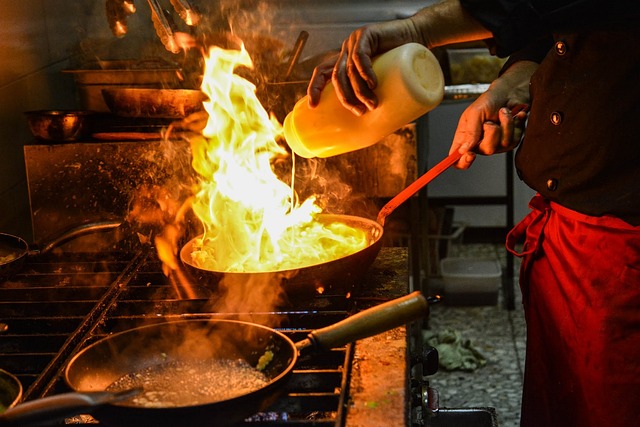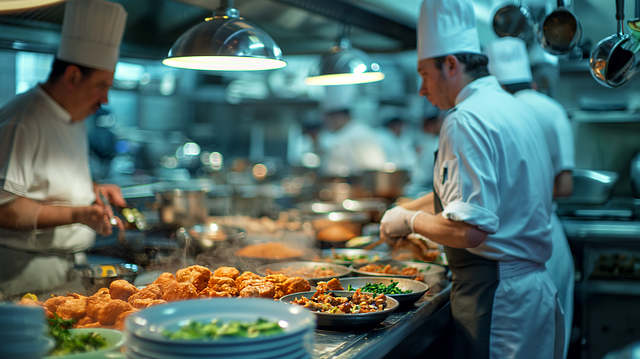For decades, British cuisine suffered from an unfortunate reputation on the global stage. Stereotypes of bland, overcooked food dominated international perceptions, with jokes about boiled vegetables and stodgy puddings becoming commonplace. However, over the past fifteen years, a remarkable transformation has been taking place across the British culinary landscape, led by a bold new generation of innovative chefs determined to redefine what British food means in the 21st century.
From Ridicule to Renaissance
British cuisine’s journey from international punchline to celebrated food tradition began with influential figures like Fergus Henderson, who championed the “nose-to-tail” eating philosophy at his London restaurant St. John in the 1990s. Henderson’s approach celebrated traditional British cooking techniques while elevating often-overlooked ingredients.
This foundation allowed today’s generation of British chefs to build upon a renewed appreciation for local ingredients and heritage recipes. They’ve begun reframing classic dishes through a modern lens, incorporating global influences while remaining authentic to British culinary roots.

Celebrating Local Produce and Seasonality
At the heart of British cuisine’s revival is a rediscovered appreciation for the exceptional quality and diversity of local ingredients. From the seafood of Scotland’s coastlines to the dairy of Devon and the orchard fruits of Kent, British chefs are designing menus that showcase regional specialties and celebrate seasonality.
Chef Sat Bains in Nottingham has pioneered the concept of “micro-seasonality,” creating dishes that highlight ingredients at their peak, sometimes for just a few weeks. Similarly, Simon Rogan’s L’Enclume in Cumbria maintains its own farm, allowing complete control over ingredients from seed to plate. This approach has transformed traditional recipes like Lancashire hotpot or fish pie into revelatory dining experiences that honor their heritage while delivering unexpected complexity.
Preserving Techniques with Modern Applications
Traditional British food preservation methods—smoking, pickling, fermenting, and curing—that once served practical necessity have become powerful creative tools for modern chefs. Techniques that sustained communities through harsh winters now provide distinctive flavors in contemporary kitchens.
Chef James Lowe at London’s Lyle’s has revitalized these traditional methods, applying them to unexpected ingredients. His approach creates dishes that feel simultaneously innovative and deeply rooted in British culinary tradition. Similarly, Merlin Labron-Johnson in Somerset uses fermentation techniques to transform humble root vegetables into complex components that elevate classic British roasts.

Global Influences, British Identity
Perhaps the most exciting aspect of Britain’s culinary renaissance is how it embraces multicultural influences while maintaining a distinctly British identity. Today’s generation of chefs reflects Britain’s diverse population, bringing techniques and flavor profiles from around the world to bear on traditional recipes.
Asma Khan’s Darjeeling Express celebrates the overlap between British and Indian culinary traditions, while Ikoyi’s Jeremy Chan explores the fascinating connections between West African flavors and British ingredients. These cross-cultural conversations have yielded extraordinary innovations, such as Tomos Parry’s Welsh-Basque fusion at Brat, where traditional Welsh recipes meet Spanish open-fire cooking techniques.
From Pub Classics to Fine Dining
The revival extends beyond high-end restaurants into reimagined pub food, bakeries, and casual dining. Chef Tom Kerridge transformed the perception of pub cuisine by earning two Michelin stars at The Hand & Flowers, proving that quintessentially British establishments could deliver world-class cuisine while retaining their accessibility and warmth.
Meanwhile, bakers like Richard Hart have revolutionized British bread and pastry traditions, combining ancient grains with innovative techniques to produce exceptional versions of classics from Chelsea buns to Eccles cakes.

The Future of British Cuisine
As this culinary renaissance matures, British food has firmly established itself among the world’s most exciting cuisines. No longer defined by outdated stereotypes, it celebrates seasonal bounty, historical techniques, and diverse cultural influences.
The next frontier appears to be sustainability, with restaurants like Silo pioneering zero-waste cooking philosophies that connect to Britain’s traditional frugal approach to food. This marriage of innovation with deep respect for culinary heritage suggests that British cuisine’s revival is not merely a temporary trend but a fundamental recalibration of how Britain understands its food identity.
For food lovers everywhere, this transformation offers compelling evidence that even the most maligned culinary traditions can be successfully reimagined. The new generation of British chefs has proven that by honoring the past while embracing innovation, a cuisine can not only redeem its reputation but emerge as one of the world’s most exciting gastronomic destinations.
